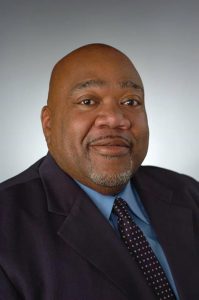“It takes a village to raise a child.” This ancient proverb has been used by everyone from teachers to elected officials to describe the important role a community plays in creating a safe, healthy environment where children can grow and thrive while realizing their hopes and dreams.

Though they are not children and their needs vary on a case-by-case basis, the saying is also apt for the more than 2,700 first-generation college students enrolled at Syracuse University.
When high school graduates leave behind their hometowns, their family members, and their friends to pursue their academic dreams, they face a daunting task in trying to acclimate to life on a college campus.
First-generation students make up roughly 19% of the Syracuse University student body (according to the most recent figures from the fall 2020 semester), and they face challenges that are both vastly different and potentially greater in number than their peers. And unlike their peers, if first-generation college students have questions, they can’t rely on consulting with a college-educated family member to resolve the situation.
Challenges such as:
- Guilt over leaving behind their home and their families to earn a degree, especially if their family is dealing with food insecurity and/or living in substandard housing.
- Anxiety over adjusting to the newfound academic, social, and financial responsibilities.
- Arriving prepared to succeed in their classes.
- Confusion about how to take advantage of the available resources, including knowing when to reach out for help with their academics and how to network and land a work-study job or internship.
- Discovering community on campus.
This can lead to feeling isolated, like you don’t belong on campus. Craig Tucker, Director of the Arthur O. Eve Higher Education Opportunity Program (HEOP) and TRIO Student Support Services (SSS)—both part of the School of Education’s Center for Academic Achievement and Student Development (CAASD)—works closely with many of Syracuse’s first-generation students. From the moment these students walk onto campus, Tucker and his staff make it their mission to establish a strong sense of belonging between these first-generation students and their new academic environment.
“I am so proud of our efforts here to support our students, but even more so those that come from the more challenging home environments.”
Of equal importance is decreasing the anxiety levels that students and their families face as their child embarks on their Syracuse University journey.
“The struggle often can be associated with students that are coming from marginalized, low-income and/or underrepresented backgrounds,” says Tucker. “There are cases where students may have a sense of guilt being in this environment where they have food and shelter while knowing that back home their families may be facing food insecurities and living in substandard housing.”
Tucker continues, “The challenges often are not academic in nature, but as a result of stresses and needs of the family back home, students may indeed end up struggling academically. I am so proud of our efforts here to support our students, but even more so those that come from the more challenging home environments. Syracuse University itself does its absolute best in going above and beyond to support the first-generation experience.”
Academically, in addition to Syracuse University’s Center for Learning and Student Success (CLASS), first-generation students can benefit from the following CAASD-based programs,
